
From submitting a resume to entering a job - talk about those things on the road to internship
Topic
2022.01.20
Journalist | Jaslyn Tan Boon Bin, Lim Qin Xuan
Photo|Clara Tan, Tay Zeng Huy, Macy Lim, Tham Yong Bao, Ng Yong Ru
Layout by|Sherlyn Chin Meijiun
Translator | Chan Zi Qing
Guest
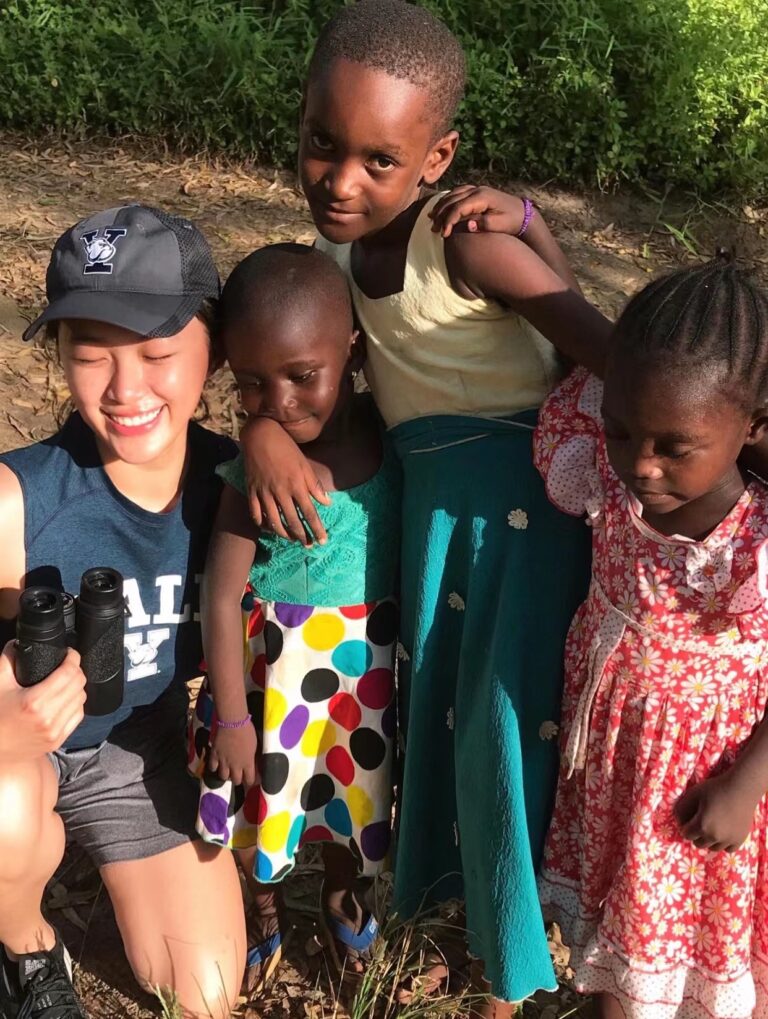
Clara Tan (陈筱暄)
Education Background: Tsinghua University Department of International Relations, Year 4 Student
Internship Experience: She has had multiple internship positions, such as Industry Research at a securities firm, Strategic Planning at the consulting firm BCG and internet company Grab. She also has job-shadowed a CIO at a property management organisation. Currently, she is working as an Legal Intern at a intellectual property law firm in Hong Kong, and is mainly in charge of writing legal articles.
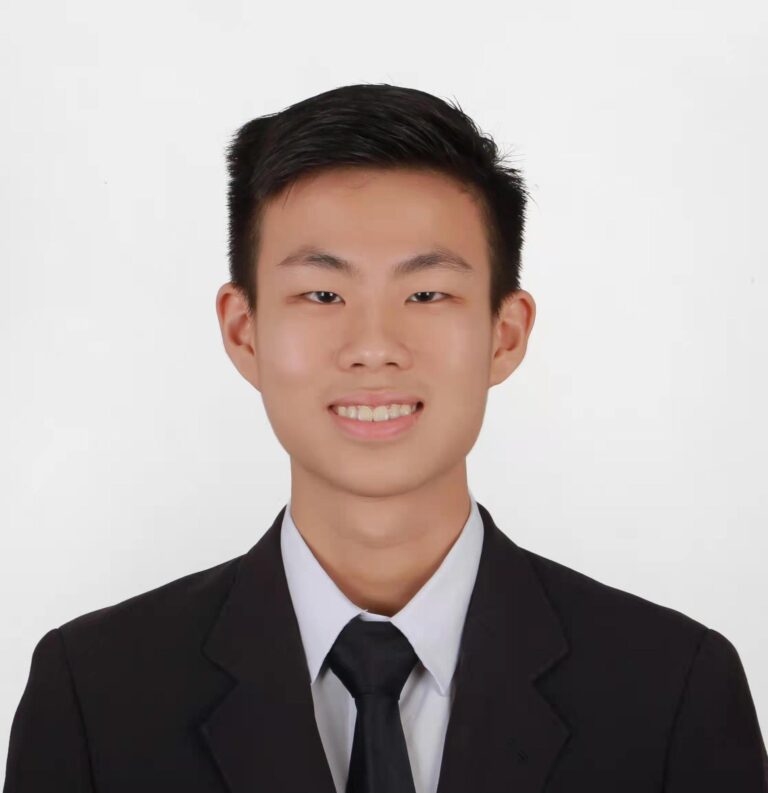
Tay Zeng Huy (戴增辉)
Education Background: Tsinghua University Department of Electronic Engineering, Year 4 Student
Internship Experience: He previously worked at Maxis, the Malaysian tech giant, as a Network Intern, and at Amazon Web Services as a Professional Services Intern. During which, he developed an automated system to increase the efficiency of communication between departments, and utilised business intelligence technologies to create visual data templates.
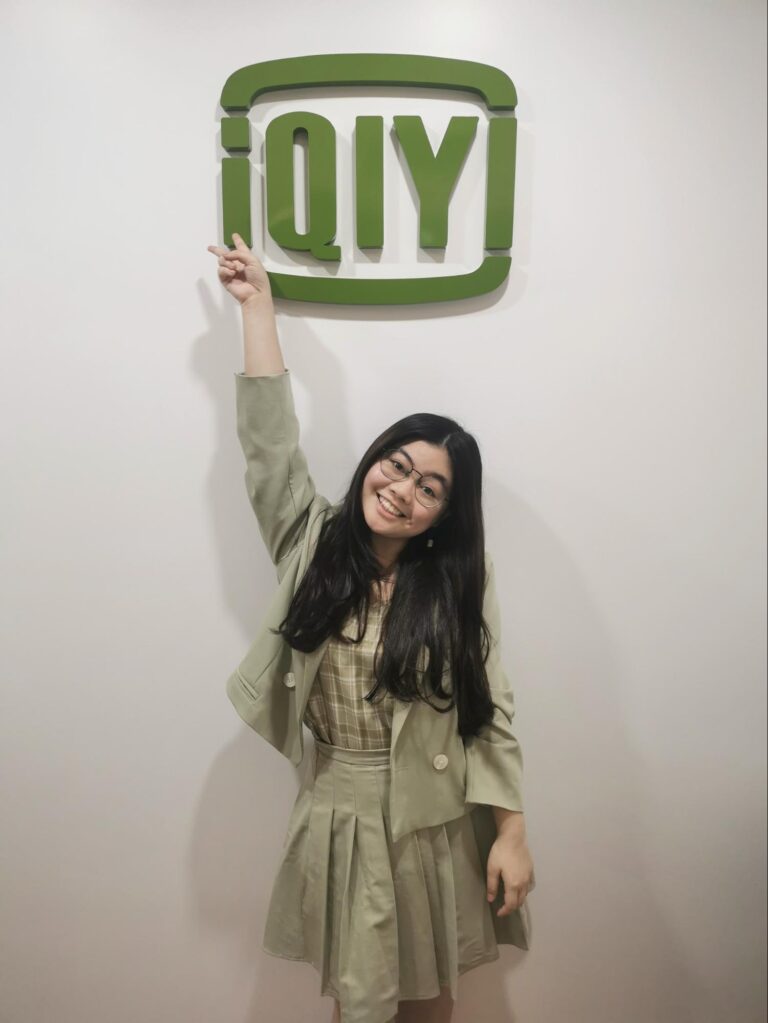
Tham Yong Bao (谭涌宝)
Education Background: Peking University Guanghua School of Management, Marketing Major, Year 3 Student
Internship Experience: She previously interned at the famous media company iQIYI’s Malaysia branch for over a term. Aside from handling administrative work, she also was responsible for figuring out the market positioning for popular Chinese Mainland dramas in Malaysia, and expanding their local influence.

Ng Yong Ru (伍永如)
Education Background: Renmin University of China Business School, Business Administration Major, Year 4 Student, On Leave of Absence
Internship Experience: She worked as an International Business Strategy Intern in the sports department of Sina, one of the four major web portals in China. She was mainly responsible for following the latest developments in sports, managing Sina’s overseas social media platforms, continuously outputting high-quality copywriting content and cross-border broadcasting of sports events.

Macy Lim (林美溪)
Education Background: Beijing Foreign Studies University, International Trade Major, Year 4 Student.
Internship Experience: She worked as a Marketing Intern at a time-honoured electrical appliance company of over 60 years in Malaysia, helping the company to expand product sales to Instagram, Facebook and building a new official website, effectively rebuilding their brand image and improving sales performance.
The openness, freedom, and inclusivity of university life has long sowed anticipation and longing in countless students, but at the same time it has also become the source of uncertainty and confusion. Whether you join academia or enter the workplace, both choices have their own set of unknowns and risks, and both will cause an impact on the future trajectory of your life. Therefore, when friends around them find their direction and start striving towards their goals, college students still remaining at crossroads are likely to face difficulties in “choosing an identity”. Since the outbreak of COVID-19, being unable to return to school has also restricted the channels for international students to obtain career intel. For example, they may miss out on activities such as corporate presentations, campus recruitment, offline autumn recruitment or career guidance, and these uncontrollable factors will cause yet a deeper sense of anxiety.
How to navigate your way through the fog?
“There are thousands of industries, and in every trade a master appears ”, so goes the Chinese proverb. The well known Japanese philosophy “Ikigai” (生き甲斐) defined the secret to work-life balance and happiness as doing what you love, excel at, and is needed by the world, while being able to fulfil your basic needs. However, practice remains an important criterion for inspecting interest in the journey of self-exploration. Only through personal experience can you determine whether a choice was right for you. For instance, if a student intends to take up a full time job after graduating, they can first look for a few high-quality internships while still in school, so as to experience the workplace and explore their own expertise and preferences.
You may have heard rumours, telling of the difficulties and competition in finding internships, or of workplace politics and power struggles. To lift the mystical veil shrouding internships, TVOB interviewed five seniors from different backgrounds, with varying internship experiences. They each went through a time of doubt, but each emerged with their dream offer. Whether you are looking for an internship, struggling with interviews and written tests, or are simply interested in current industry trends, their experiences will surely bring you inspiration.
Overview
#1 Finding an internship while studying at home
The sudden outbreak of a pandemic has disrupted many of our study plans. Activities that we could freely participate in when at school, such as joining clubs, volunteering or research projects, have now become out of reach. After at least three semesters of online classes, many seniors have gone through the emotional cycle of “wait-disappointment-change”. Facing an uncontrollable circumstance, they attempted to readjust their mentality, reexamine old plans and make necessary changes.
During her time in Beijing, Clara Tan actively participated in her school’s social studies. Fuelled by an outgoing personality and an affinity for exploration, she travelled to Meizhou, Xi’an, Japan and the Philippines to observe local cultures and conduct social experiments. She is also a recipient of her school’s Siyuan Scholarship. Online classes have obviously obstructed such activities, but it also prompted her to venture out of her comfort zone and seek new career possibilities.

Also from Tsinghua University, Tay Zeng Huy of the Department of Electronic Engineering has developed a strong interest in scientific research since his freshman year. Before returning to Malaysia, this had always been the goal he worked towards. However, due to the difficulties of conducting research online, he was absent for many important stages in research. This became a chance for him to extract himself from a familiar environment, and discover his strengths in the workplace. Although internships at Chinese companies were probably more compatible with his major, considering the fact that most Chinese employees could already work in-person, remote internship opportunities were limited. Thus, he decided on two local technology companies, Maxis and Amazon Web Services.
#2 How to choose among a hotchpotch of ways to find an internship?
Broadly speaking, there are two common ways to apply for an internship, either via internal referral by an employee or the company’s public submission portals. In general, internal referral allows job seekers to bypass part of the screening process, such as preliminary screenings or written tests, but this approach also largely relies on the applicant’s social connections and networking skills.
Ng Yong Ru from Renmin University of China got an internship at Sina Sports through the referral of her senior. At the time, her senior who was working at that department was urgently seeking someone from a business background and proficient in Chinese, English and Cantonese to take over her position. Ng Yong Ru, who had outstanding linguistic prowess, thus got the opportunity. Clara Tan also had a similar experience. Her first internship was about researching the education industry at a securities firm, which had also been secured through approaching her seniors, introducing her personal background and submitting her resume. For students who are just entering the workplace, internal referral certainly helps to avoid detours and conserve energy, but that does not signify such chances are easy to come by, because every referral is made at the expense of the seniors’ reputation and credibility. As recommenders, they essentially promise to the company whoever is recommended will be competent for the job. Therefore, anyone who gets an internal referral should cherish the opportunity, and work hard to not disappoint the seniors’ kind intentions.
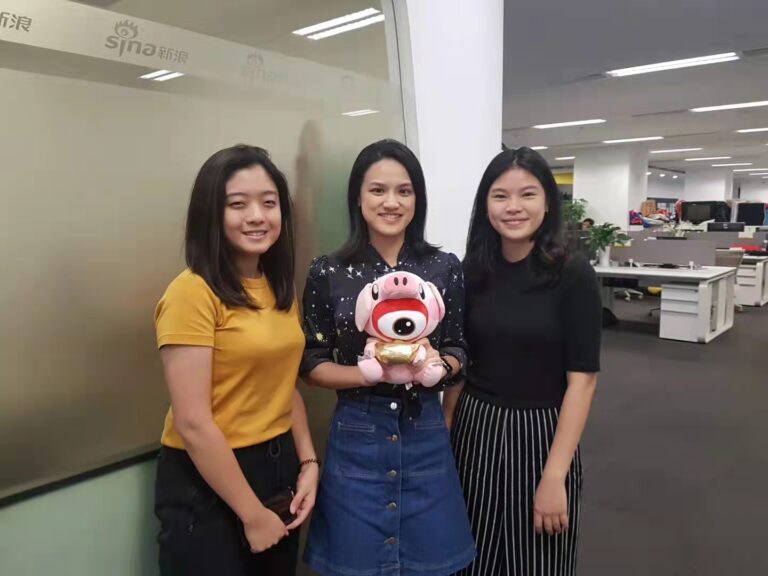
If there are no similar opportunities around them, job seekers can also look for and connect with employees at their target companies on Linkedin. After deciding to do an internship, Tham Yong Bao, who hopes to join the multimedia industry, contacted the marketing manager at iQIYI Malaysia through this platform. She first introduced her personal background and submitted her resume, then enquired if the company was accepting interns. Although the company’s official website did not have any notices on internship recruitment, she still secured her dream offer this way.
Other than that, well-known job seeking platforms, such as Glassdoor, Indeed, and Jobstreet, also offer much information on recruitment, which is how Tay Zeng Huy managed to find his two internships. However, he thinks that compared to mindlessly submitting your resume to an excessive number of companies, it is much more efficient to be selective—job seekers should carefully peruse the job requirements and compare it to their personal experiences, to ascertain their compatibility with the position.
Also, Facebook, being a social media platform, is often overlooked as a way to search for jobs. Ensuing the rise of e-commerce, in addition to being a platform for friends to share life updates, it acquired a new utility in business, with many businesses or employers choosing to post recruitment information on Facebook. Macy Lim had previously encountered some obstacles in job searching, but eventually found her first e-commerce internship on Facebook.
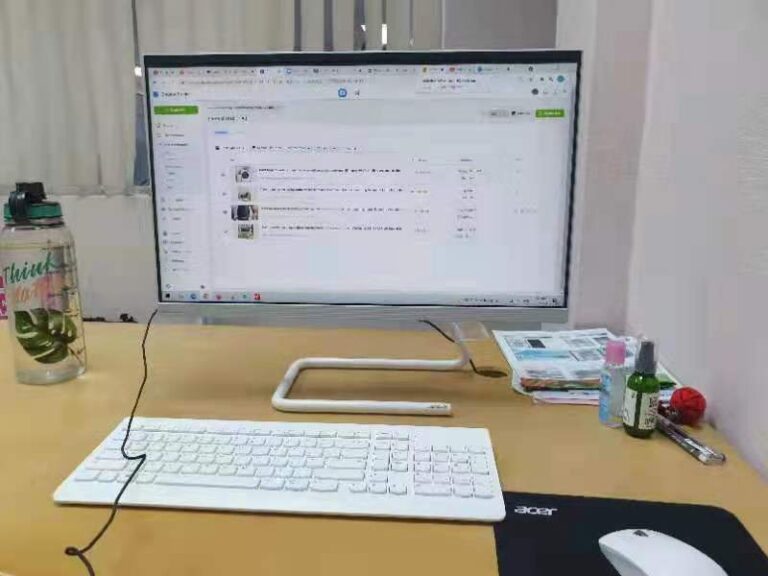
#3 “I feel like I’m not good enough”, or I don’t have relevant experience, should I still submit my resume?
Many students in the humanities have faced such conundrum—my major seems to be incompatible with the position I’m applying for, or I still don’t have relevant experiences. Considering this, will my application be rejected? In reality, according to Clara Tan’s internship experiences, non-technical positions generally favour applicants with soft skills such as communication, writing, teamwork, enthusiasm and so on, and these skills happen to be attainable through club activities. If the workplace language is predominantly English, then the employer will require higher proficiency of business English, that is, business fluency. Candidates should demonstrate eloquence when interviewing, including answering questions fluently, to have a higher chance of being chosen. Though most Malaysian students have better English writing and comprehension skills, oral communication might be an area many are lacking at. To counter this, Clara Tan suggests that students should step out of their comfort zone, and utilise school resources to communicate with people from all over the globe. As for how to increase the chances of your resume passing selection, Tay Zeng Huy recommends seeking advice from seniors, or pay for resume editing services online.
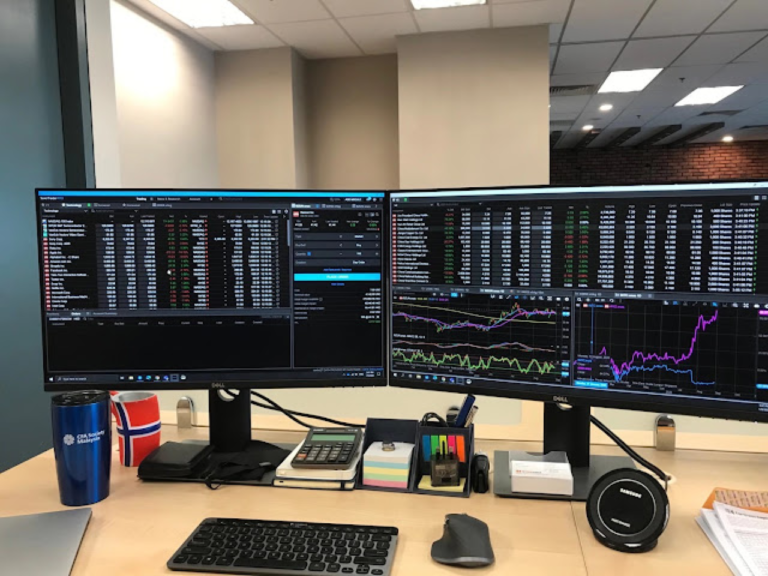
On the other hand, self-studying is also an important way to make up for professional competence. Good self-learning ability not only allows you to quickly pick up a new job, it is also the basis for adapting to the pace of the workplace. When she first entered the workplace, Macy Lim was assigned work in administration and platform operation, which happened to have little to do with her international trade and economics major. Tay Zeng Huy had been exposed to only limited content pertaining to internet technology in his courses, and Ng Yong Ru was also a novice in the field before entering Sina Sports.
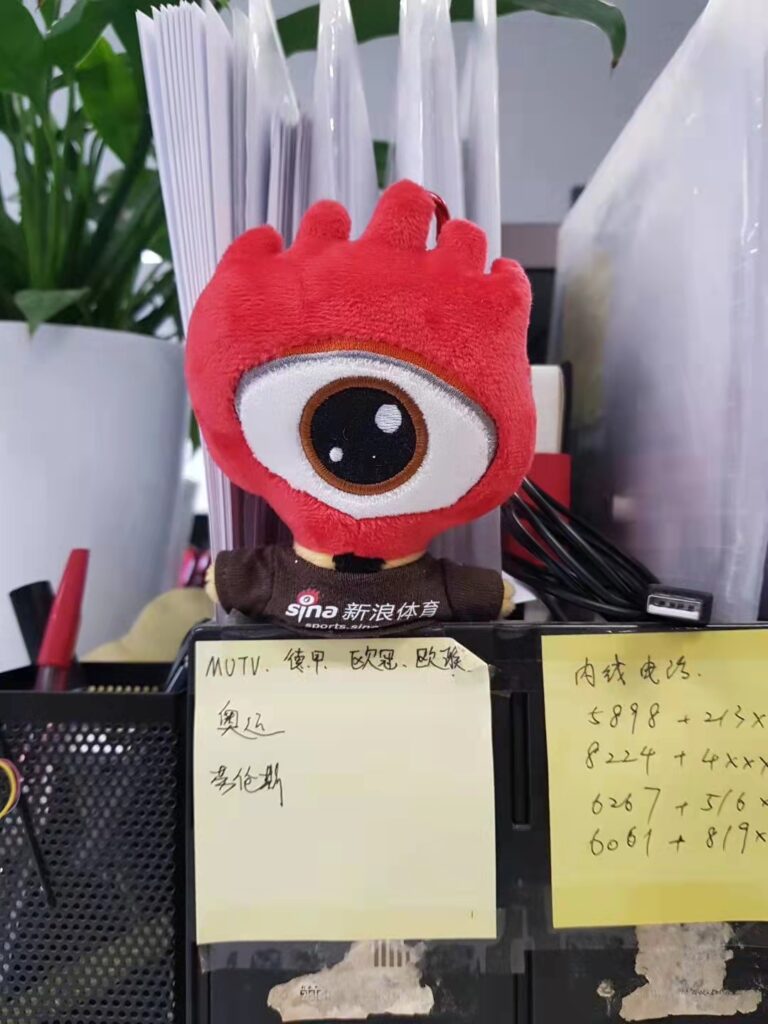
When facing the situations above, the three did not feel overwhelmed because of all the unknowns. Instead, they worked hard to accumulate experience through Google, YouTube, Skillshare and Stack Overflow. By the end of her internship, Macy was able to reshape a time-honoured company’s image through building a new web platform, and expand its business channels to Facebook and Instagram. Other than that, Tay Zeng Huy built an automated data system for Maxis, which reduced the time spent by employees of manual data entry and optimised interdepartmental communication. After rigorous research on basketball competitions, Ng Yong Ru too gradually figured out how to operate a sports media platform. Drawing from Tay Zeng Huy’s personal experience, while having a background of studying abroad in China is not an absolute advantage in the local market, there is no such thing as “educational discrimination” either.
#4 Please receive this copy of “How to Interview 101”
For those who want to get internships through internal referral, “networking” happens earlier but is even more important than the official interview. When students invite employees of their target company for a coffee chat, or contact them repeatedly on LinkedIn, the other party has already begun to observe your speech and thinking patterns. Therefore, Clara Tan suggested that students do detailed research in advance, think about their reasons for choosing a company, understand the current trends of that industry, and highlight how their individual strengths will contribute to the company’s development. For example, when she was interviewing for a strategic planning internship at Grab Malaysia, she was asked about her thoughts on the future market landscape of electronic payments in the country.

After reaching the official interview stage, there are mainly a few types of interviews you may encounter—group interviews without business leaders present, single or group interviews with specific department or human resource managers, and direct conversations with senior management. At this stage, it is extremely helpful to ask seniors about their experience or search for tips and common interview questions on online forums, and use this information to work on your own weaknesses. When Tay Zeng Huy applied for the Professional Services Intern position at Amazon, he learned the general process and focal point of the interview through experience previous applicants shared online. The screening process of that internship program was rather stringent, the first round focused on whether the applicant could integrate into the company’s corporate culture, and the second round of departmental interviews examined whether the applicant could apply the company’s 16 leadership principles. Observing the experience of others, Tay Zeng Huy deciphered a pattern, that no matter how the questions changed, the essence of the assessment remained the same. Therefore, he focused on combining his previous experiences with the aforementioned leadership principles when preparing for the interview, and ultimately got the offer.
Also, it is worth noting that the pursuit of quality is always more important than quantity. As such, regardless of the amount of interviews you have participated in, job seekers should always review their performance and think about room for improvement, so as to perform better the next time.
Bringing You the Current Industry Trends
#1 What is it like interning in different industries?
In recent years, the term “involution” (内卷) has grown viral in China, as internships are now not exclusively a problem for higher grade students. Anxiety about internships is gradually spreading among lower grade students. Among them, strategic consulting, new media, e-commerce and technical positions have become largely sought-after spots in the job market. Internship experience in internet or consulting-related positions, is arguably a must-have plus point on your have.
Ng Yong Ru is our only interviewee who has interned at a Chinese company. She shared with us that working hours are more flexible at an internet company. Even on days packed with classes, working remotely is supported, and sometimes tasks come in on weekday evenings or weekends too. During her tenure, she was mainly responsible for the marketing of the IP of an international three-player basketball series, her tasks included copywriting, contacting Weibo influencers, facilitating cross-border broadcasting and more. When her internship coincided with exam season, Ng Yong Ru’s daily routine was basically to get up, do homework, go to work, do homework, and sleep. Entertainment was forcefully removed from her life, leaving only 3 fixed stops every day—school, company and the dormitory.
Most companies tend to choose relatively casual activities for team building, for example, dinner parties. However, fitness, table tennis, and more of these seemingly unusual team building activities, are not so uncommon at Sina Sports. Occasionally, Yong Ru can spot people playing in the hallways of the company. In addition, she received small gifts from the company’s partner manufacturers every now and then. According to her, her seniors who worked in Sina’s media department often met celebrities.

Since Clara Tan started her first internship in her sophomore year, she has not stopped since. In one and a half years, she has accumulated five internship experiences from different fields. She has written industry research reports, analysed market trends, handled strategic planning, and undertaken administrative work. Clara Tan’s first internship was supposed to be an internship at Grab. Back then, she had already received an email from the company notifying her of her successful application, but no contact came from HR for a long while. At the same time, there were media reports of Grab deciding to lay off employees due to the impact of COVID. This unexpected episode delayed her supposedly already obtained offer by a few months.
Currently she is working as a legal intern, in charge of marketing and writing legal articles for the company. During her internship, Clara and her superiors at work jointly completed an article on patent litigation. To her, having a piece with her name on it is not only great proof of her work, but also a way to reflect her abilities.
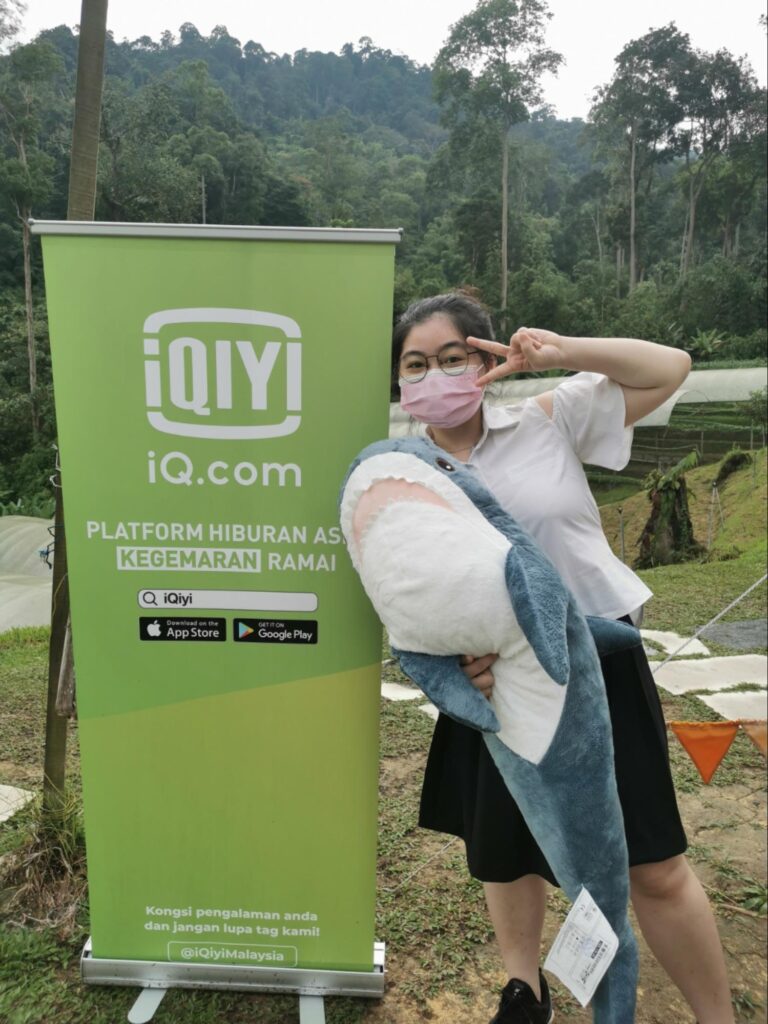
“I like the film and television industry too much”, this is the reason Tham Yong Bao insisted on interning at iQIYI. When she first joined the company, iQIYI Malaysia was only a new team that had been established for less than a year, but that was exactly what gave her enough opportunities to practice and grow. During her nearly ten-month internship, she tried SNS (Social Networking Services), public relations, content marketing and other positions.
Dramas and variety shows get renewed extremely quickly, almost every two weeks a new one gets released. Therefore, the work at iQIYI is also really fast-paced. After each film is released, Tham Yong Bao needs to help the team with marketing, through contacting partners or conducting market research, so as to increase the film’s exposure and popularity. There are not many people in the team so the environment is relatively free. Yong Bao‘s opinions have never lacked opportunities to be implemented, which unknowingly added to her motivation to accomplish her allocated tasks.
#2 Fun Internship Moments: Interviewee’s Most Unforgettable Moments
Cultural differences is a hurdle every international student cannot avoid. In addition to language barriers and ideas, it will also be reflected in the miniscule parts of daily life. When sharing about some fun happenings during her internship, Ng Yong Ru remembered them like yesterday. There was once she was sent to the Finance Department to issue checks. Because she was not familiar with Chinese numerals and had a habit of writing the number “7” with a horizontal bar, she miswrote five or six checks in a row, until she was stopped by an employee at the department who asked her to come back later. The person in charge did not know who she was and sent a message to her boss, who was on a business trip at the time, explaining what happened. Fortunately, the misunderstanding was clarified later on, and Yong Ru successfully completed the task.
Before becoming an intern at iQIYI, Tham Yong Bao was the head of the Guanghua School of Management Student Council’s Academic Development Department at Peking University. She was also the head of the Delegate Liaison Department for the China-ASEAN Youth Summit and the China-ASEAN Young Leaders’ Summit. Classes, co-curricular activities and internships filled her schedule to the brim. She joked that she could only choose to sacrifice sleep among “socialising, studying and sleeping” to better balance the remaining two. There are also times when she feels overwhelmed, but this is when she will communicate with her partner or boss, explain her current situation, then provide a new deadline.
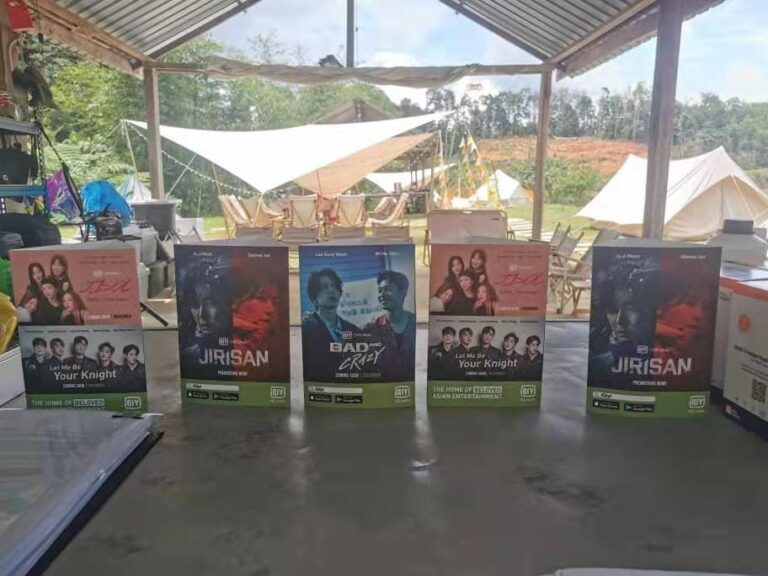
#3 What kind of mental preparations should be done before becoming an employee?
Seeing as they’ve all been there, the interviewees invariably pointed out the importance of active communication. Tay Zeng Huy and Tham Yong Bao both think that interns can only achieve swift growth in the workplace by mustering the courage to ask questions. Tay Zeng Huy took himself as an example to explain that when studying, he prefers to solve problems and seek answers on his own, but that same model is not feasible in the workplace. If progress is hindered, all the team’s subsequent work will be affected, hence it is always best to seek help proactively. Ng Yong Ru believes that interning is a process of continuous trial and error. Whatever opinions or ideas you may have, you should express them promptly, and not be deterred by negative feedback. Clara Tan added that if you are interested in a certain field, you should make good use of the company’s resources during your internship, and take the initiative to communicate and consult with seniors and experts in the company, which will help you understand the field you might want to pursue in the future and generally have better career planning.
As newcomers in the workplace, interns need to gain a comprehensive understanding of the work and complete their internship goals in limited time. The pace of the workplace is fast, many things need to be started immediately, and the end result is generally used to measure your work rather than efforts put into the process. Therefore, Clara suggested that the juniors learn to say goodbye to a linear style of thinking, that is, thinking that every effort will bring equal returns.
Accepting dirty-work is also a compulsory subject for interns. Interns are often extremely ambitious after taking on the job and hope to realise their personal values during the internship. However, in reality, they are often only greeted with countless trivial and non-technical tasks such as compiling reports, making slides, translation, etc. Clara Tan pointed out that as an intern, learning and feeling the workplace are the most important, and you should quickly adjust your mentality and commit to your work, since after all, everything starts from ground zero.
#4 How to balance being an employee and student at the same time?
Contrary to Malaysian universities, Chinese universities do not reserve a semester for students to do internships. Therefore, students studying in Chinese universities often cannot avoid a problem during their internships: how to balance their studies and internship? Faced with this problem, Clara Tan‘s choice was to focus on her internship, because learning runs through life and much can also be learned at work. Being in her fourth year this year, she chose with certainty to pursue direct employment instead of furthering her studies after graduation. She believes that work experience will be a more important criteria for employers when recruiting undergraduates
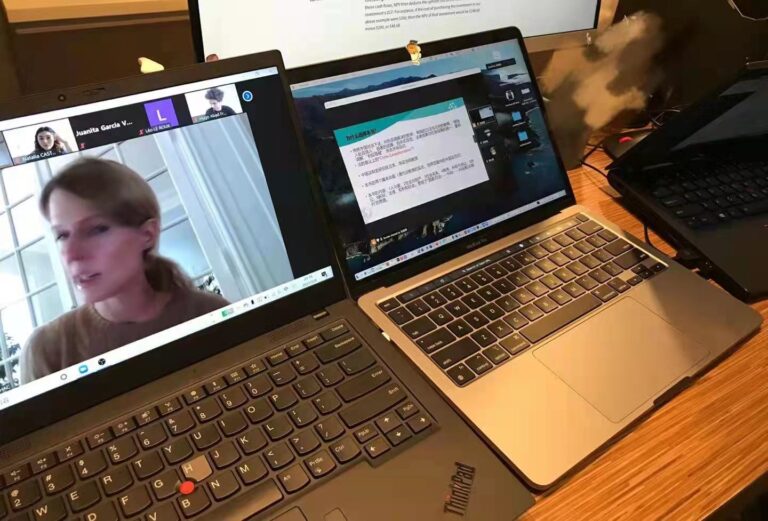
Macy Lim had a different answer to this question. She cleared all her mandatory credits in the first six semesters of university so that she could fully devote herself to her internship without worries. Tham Yong Bao’s answer was similar to Macy’s. She will reasonably plan the her courses based on her co-curricular activities and internship situation that semester, to avoid being up to her ears in work.
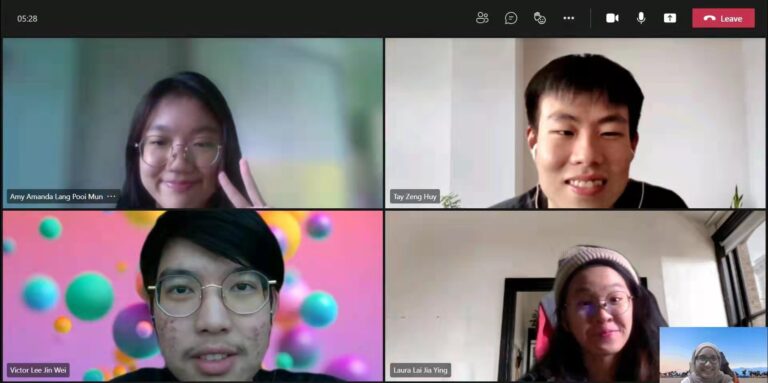
Internships at Maxis are project-based, so interns can flexibly choose the number of projects they can commit to according to their capability and time. In order to better balance his studies and internship, Tay Zeng Huy chose only one project during his three-month internship period. He also adopts a “work-life balance” working style, and he does not deal with work-related matters after work.
After completing the internship, where will the next journey begin?
Clara Tan will continue her internship in a Hong Kong law firm in the short term, but her interests lie in wealth and asset management. In the future, she hopes to join the financial field. Although she has a long way to go to become a Central District worker, she will also work hard towards her goal, step by step.
Tay Zeng Huy, who is in his senior year, will choose to focus on his final year project after finishing his internship and not start a new one. As for the future, though doing research is a common choice in his major, Zeng Huy is still contemplating between further education or employment. To him, anything is possible. The pandemic placed obstacles on his road to scientific research, but it also opened another window for internships.
Tham Yong Bao plans to end her internship latest by March next year. After that, she will go to a foreign university to start a wonderful exchange life. Her love for film and television has long since blossomed in her heart. In order to achieve her goals, Yong Bao hopes that after graduating from her undergraduate studies, she can pursue a master’s degree in film and television planning at a Chinese university.
Ng Yong Ru is currently on a leave of absence from school. Having been influenced by her family since childhood, she developed a strong fondness for cultural and creative industries (CCI), and plans to spend this year helping her parents manage their teahouse in Penang, and search for an intersection between business and CCI.
Macy Lim will still choose to intern in the e-commerce field. After experiencing B2C e-commerce, she wants to try logistics and other branches of e-commerce, and strive for breakthroughs in her professional abilities.
In the face of the internships, some people choose to go all the way, and some people choose to stop temporarily and enjoy the scenery along the way. On the long road of job hunting, only when you find your rhythm can you travel further.
“Everyone works in their own time zone”, no matter how fast or slow, just make every choice without qualms
Each experience entails endless possibilities. Through this interview, we got to know Clara Tan, who has been working hard towards her goal; Tay Zeng Huy, who has stepped out of scientific research into internships; Tham Yong Bao, who has a passion for the film industry; Ng Yong Ru, who pursues a career in CCI; and Macy Lim, who strives to explore the field of e-commerce. Everyone in this story had different positions and internships, but they have all grown in the process. Under the pandemic, the career plans of every international student in China has been more or less affected. TVOB hereby sincerely wishes that everyone can, like the five interviewees, believe in their potential, make great strides on the road of exploration, and find their own way.
Borrowing Macy Lim’s words, never be afraid of rejection, because even if you missed that one in a thousand chance of success, you can still learn of your own shortcomings, and that will make you invincible.

Editorial Board of The Voice of Beijing, 2021
Edited and published by | AMSIB
Advisor | Phuah Chi Ching, Choong Chi Jiong, Lim Yu
Coordinator | Sherlyn Chin Meijiun
Chief Editor | Ng Sie Unn, Koo Jing Tang
Journalist | Jaslyn Tan Boon Bin, Aden Tan Shen Yeh, Ho Ching Ling, Hoo Zi Ning, Ng Zi Wei, Kua Yee Shuen, Lee Jia Rong, Lim Qin Xuan, Song Yee Ting, Gan Jing Wen
Photographer | Sharyl Chow Khye Shien, Chew Chen Yee
Film Editor | Neoh Ke Wei, Ong Xiang Ying, Song Yee Ting
Art Editor | Ong Xiang Ying, Tiu Ann Kei
Translator | Chan Zi Qing, Tiu Ann Kei
Host | Aden Tan Shen Yeh, Kua Yee Shuen

